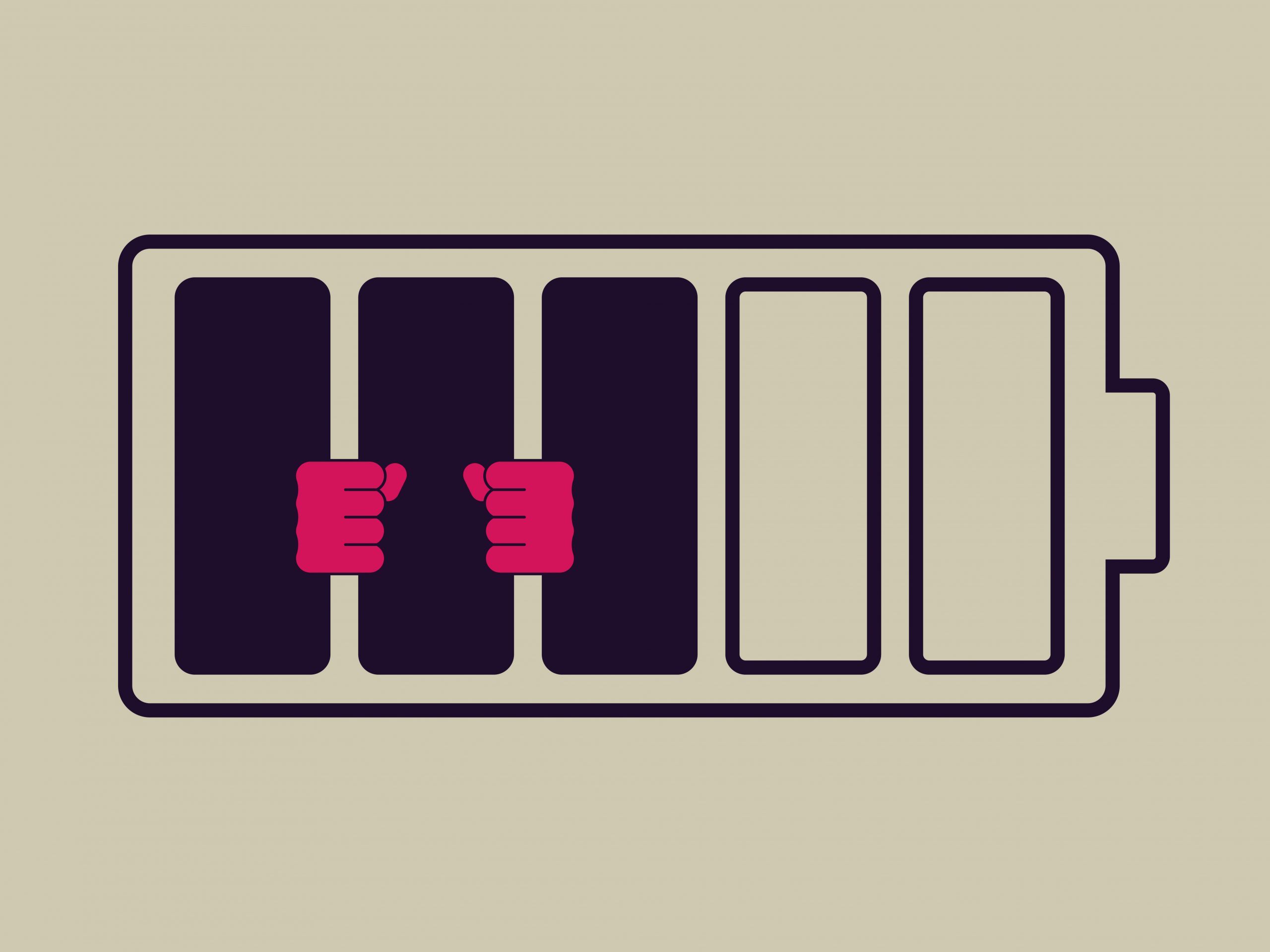Our human need for connection should keep us grounded in reality.
The Digital Disaster

Our new technological environment is inescapable, as are the threats it poses.
This feature presents responses to an excerpt from Claremont Institute Executive Editor James Poulos’s forthcoming book Human, Forever: the Digital Politics of Spiritual War. Sign up at humanforever.us to be the first to know when Human, Forever NFTs and sales go live on canonic.xyz.
In his short work Man and Technics (1931), Oswald Spengler predicted that the conquest of the earth by technology would not be stopped by Luddite revolution or environmental catastrophe, but would grind to a halt as the human beings who design and run the machines simply lost interest in maintaining them. Disgusted by the results of victory in their long war against nature, men would fold up their schematics, lay down their tools, and retreat to a simpler life as the West European-American civilization sought peace and quiet in which to run out its final days.
Media and tech theorist James Poulos does not share the old German’s optimism. Spengler could not have foreseen the disaster about which Poulos writes in his new book, Human Forever. French philosopher Paul Virilio, upon whose work Poulos draws to precise and powerful effect, observed that every new technology brings into the world with it a new disaster. To invent the ship is to invent the shipwreck. The invention of the powered machine inaugurated an era of man-made disasters of mythical scale.
From the Titanic to the Bhopal chemical disaster, the inventions of man turned on him with a wrath previously reserved for the gods. And yet, for all their sublime destructive power, the catastrophes of the Industrial Age remained localized. They were something we might avoid, or at least run away from, like a tornado or a giant monster attacking the city. It was only at Chernobyl that we began to glimpse the world-encompassing potential of technological catastrophe, but by then the heralds had already announced the birth of a new technics, and with it a new disaster. There is no hiding from the disaster of the Digital Age.
Virilio coined the term “Integral Accident” to describe disasters that cause unpredictable cascading failures. Having made ourselves dependent on the smooth operation of systems whose complexity has outrun our analytical capabilities, we find ourselves unable to head off or stem the chain of successive catastrophes. He told an interviewer:
Just like there has been a change in the nature of the accident somewhere in the eighteenth and nineteenth century—from the natural accident towards the industrial accident—we now witness a fresh transmutation…from the industrial accident to its post-industrial successor. This transmutation is accompanied by a very substantial increase in scale. The industrial accident is still the kind of event that “takes place.” The post-industrial accident, on the other hand, goes beyond a certain place—you might say that it does no longer “take place,” but becomes an environment.
From the accumulating cloud of satellites and space debris orbiting above to the fiberoptic networks running through ground and sea below, technology no longer refers to a tool or technique, but to the very environment in which we live, breathe, and have our being. Virilio describes the 9/11 attacks, Hurricane Katrina, and the Deepwater Horizon oil spill as examples of how modern telecommunications technology has turned every disaster into a global disaster.
And yet the digital disaster Poulos describes exceeds even Virilio’s vision, for the scene of the accident is not the power plant or shipping lane, but the human mind and soul.
Alas, there will be no Oval Office address, no declaration of national emergency, in the wake of the digital disaster. The challenge of remaining human in the post-disaster world is one we must face without support from Industrial Age institutions which have been incorporated into territory conquered by the cyborgs and digital swarms. But that does not mean we must face it alone. Poulos refuses to lie to the reader or to peddle false hope, but nevertheless manages to leave one with a firm certainty that it is humanity’s war to win, if only we show up to fight.
He has taken up the great task of Generation X by telling of the digital apocalypse that his generation has straddled. But more than that, he has written a survival manual for Last Men who refuse to go down without a fight.
The American Mind presents a range of perspectives. Views are writers’ own and do not necessarily represent those of The Claremont Institute.
The American Mind is a publication of the Claremont Institute, a non-profit 501(c)(3) organization, dedicated to restoring the principles of the American Founding to their rightful, preeminent authority in our national life. Interested in supporting our work? Gifts to the Claremont Institute are tax-deductible.
Americans should resist technological subjugation by any means necessary.
Our unruly digital environs are frightening, but they’re better than total bureaucratized control.
A cloud of soulless bots has devoured our grandest dreams. How do we live now?




